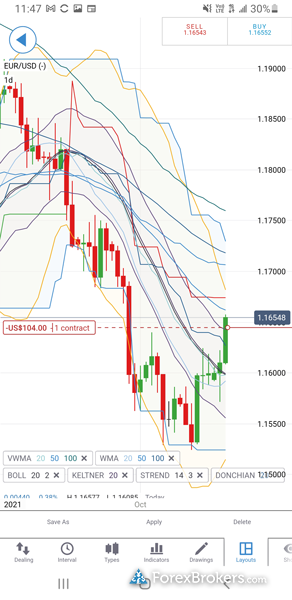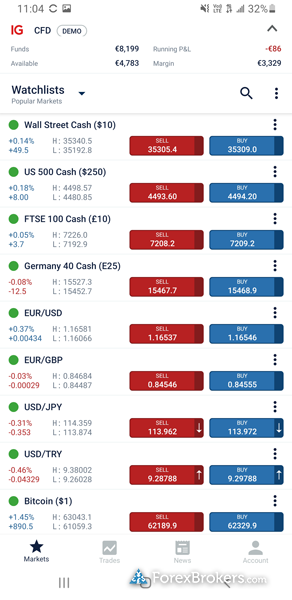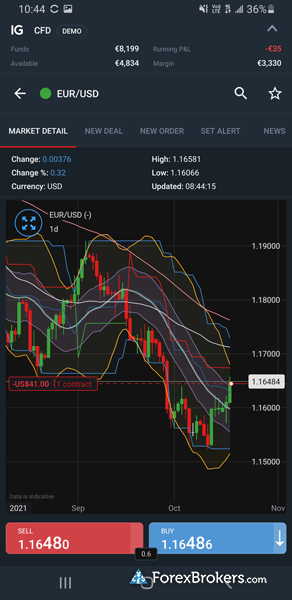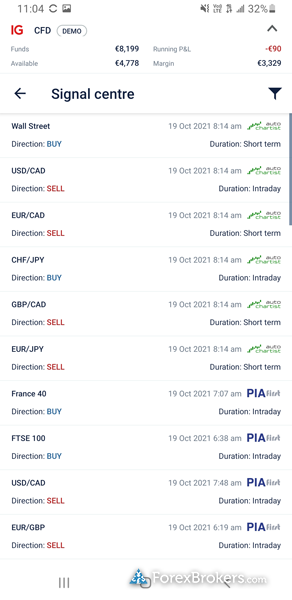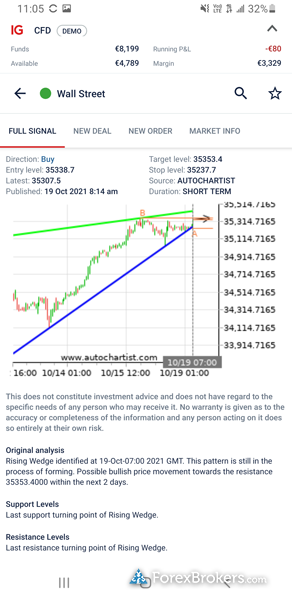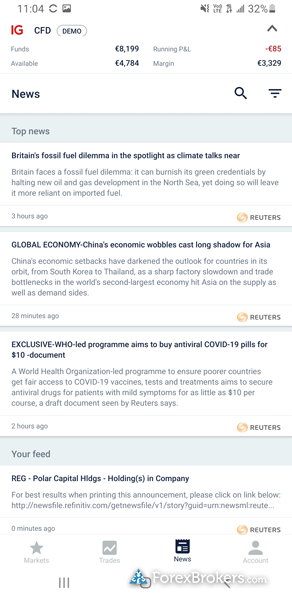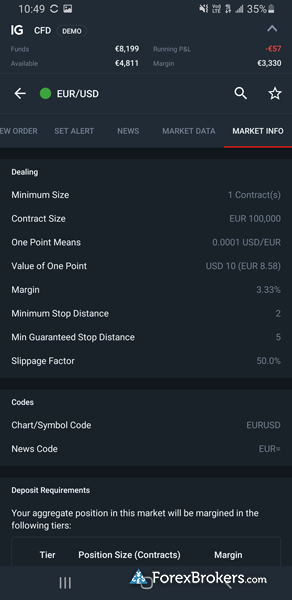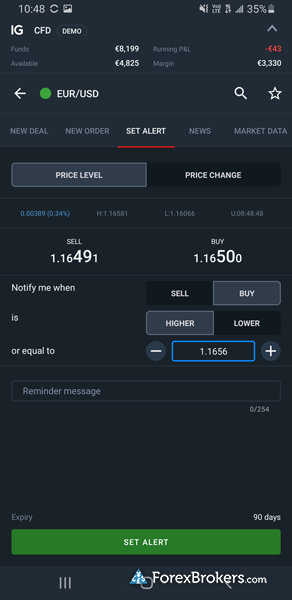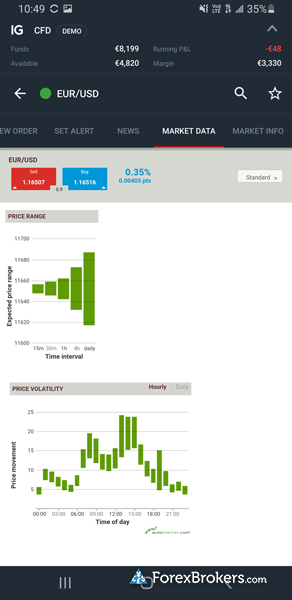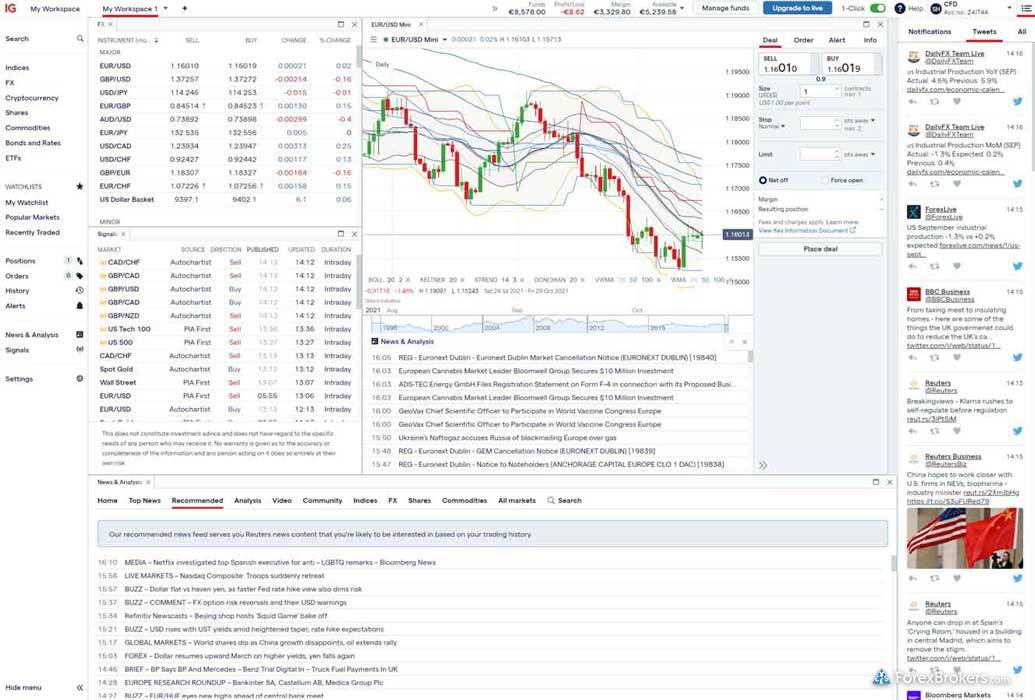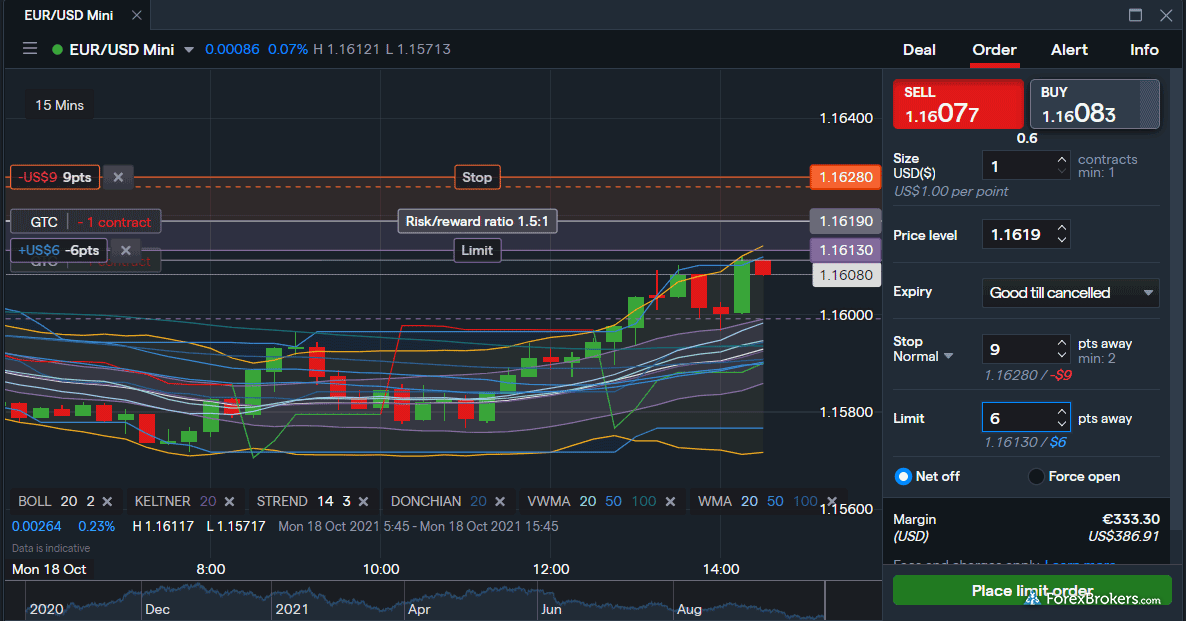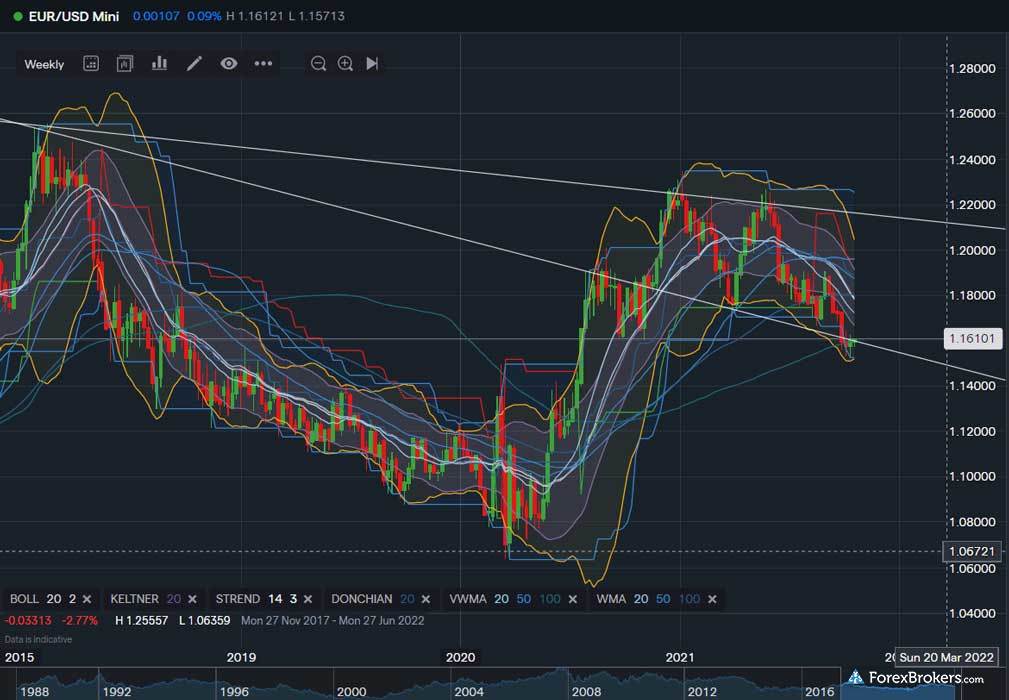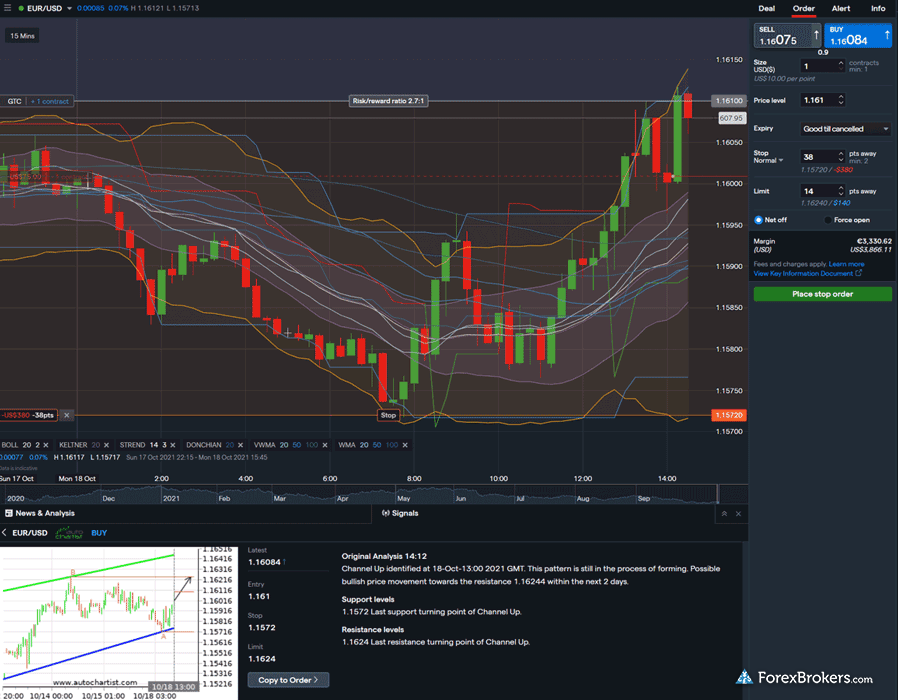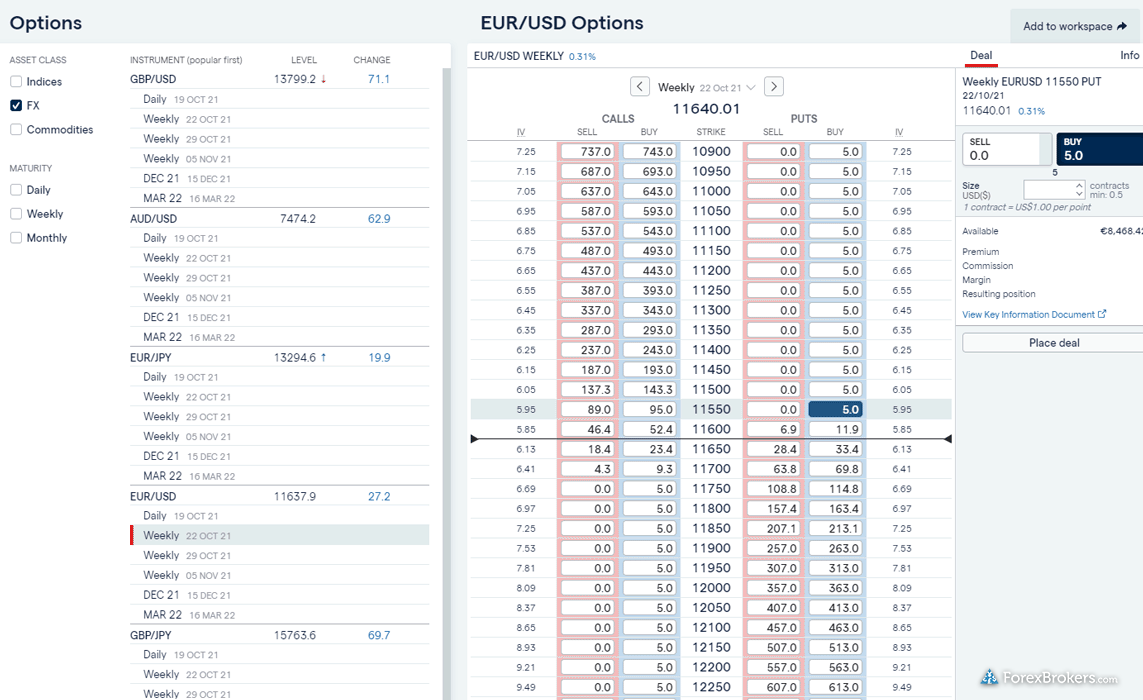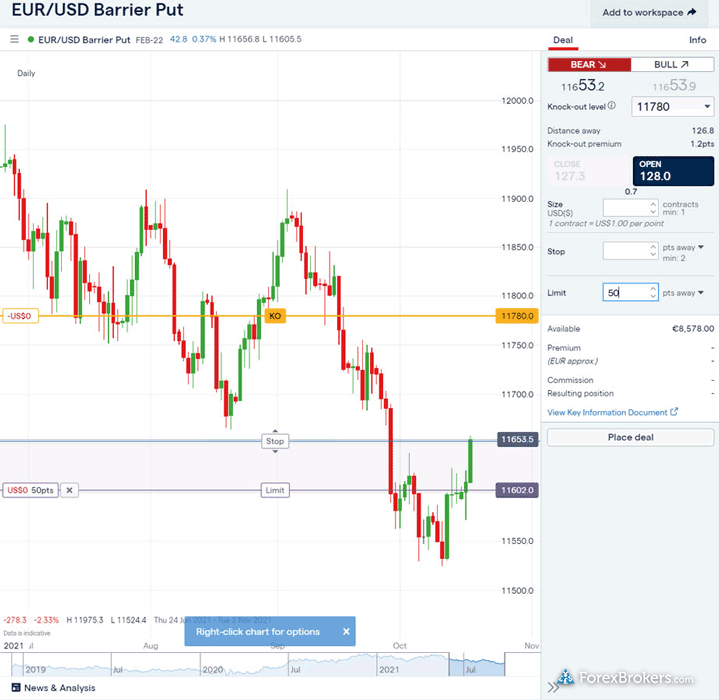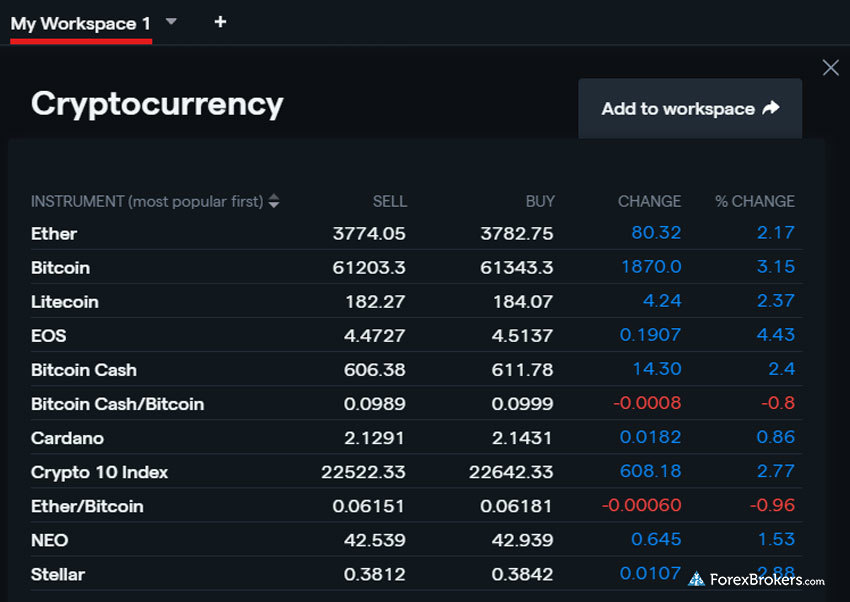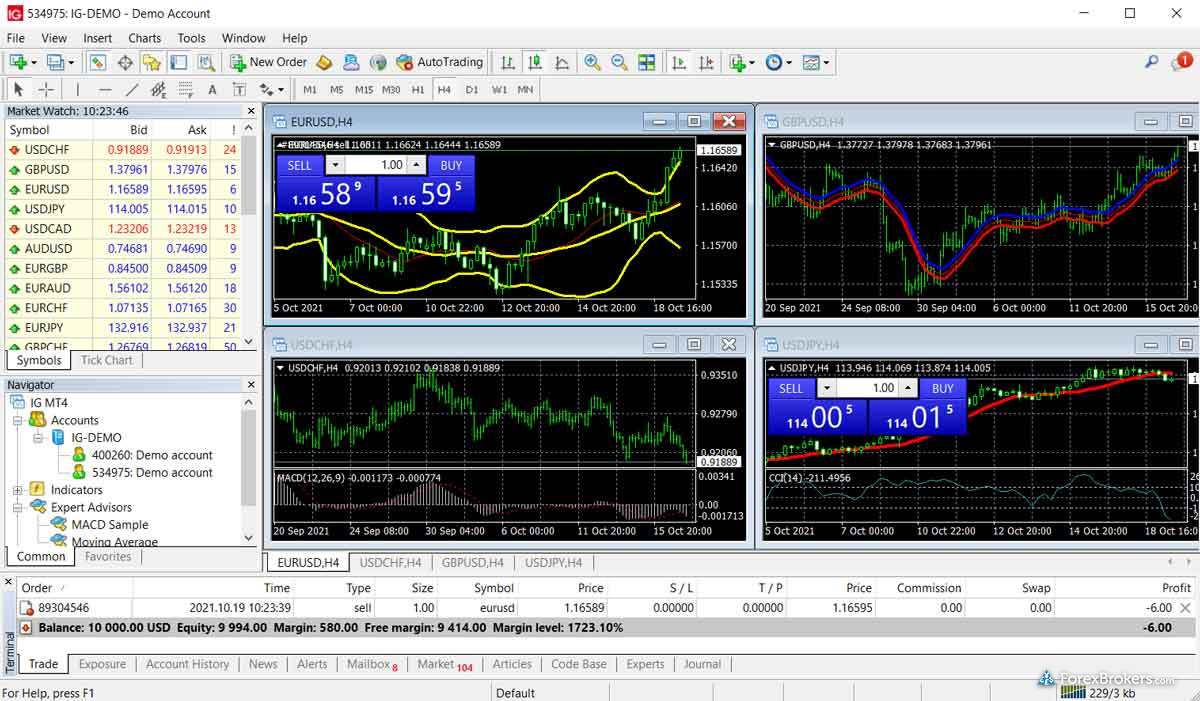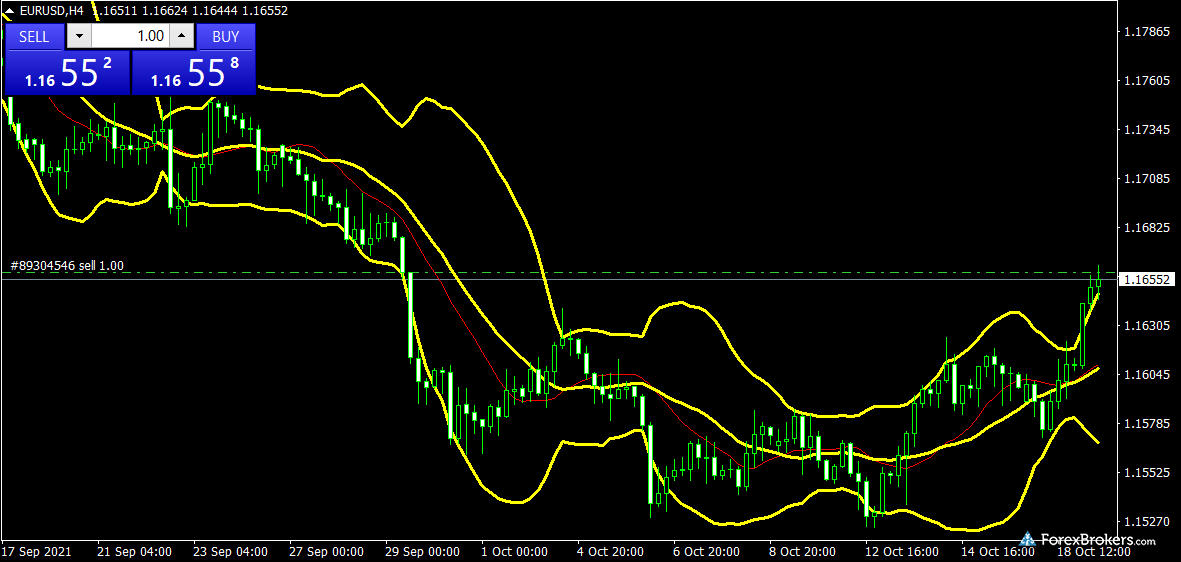Best Forex Brokers in Philippines for 2024
ForexBrokers.com has been reviewing online forex brokers for over six years, and our reviews are the most cited in the industry. Each year, we collect thousands of data points and publish tens of thousands of words of research. Here's how we test.
Trading forex (currencies) in the Philippines is popular among residents. While recommended, forex brokers are not required to become authorised by the Securities and Exchange Commission (SEC) to accept residents of the Philippines as customers.
The Securities and Exchange Commission is the financial regulatory body in the Philippines. Website: http://www.sec.gov.ph. We recommend Philippines residents also follow the SEC on Facebook: https://www.facebook.com/Philippine-Securities-and-Exchange-Commission-1667835130107172/.

The SEC - Philippines was established in 1936 and is responsible for regulating the securities industry in the Philippines. For a historical breakdown, here's a link to the Securities and Exchange Commission webpage on Wikipedia.
CFDs are complex instruments and come with a high risk of losing money rapidly due to leverage. Between 51% and 89% of retail investor accounts lose money when trading CFDs. You should consider whether you understand how CFDs work and whether you can afford to take the high risk of losing your money.
Best Forex Brokers Philippines
To find the best forex brokers in the Philippines, we created a list of all brokers that list the Philippines as a country they accept new customers from. We then ranked brokers by their Overall ranking.
Here is our list of the best forex brokers in the Philippines:
-
IG
- Best overall broker, most trusted
-
Interactive Brokers
- Great overall, best for professionals
- FOREX.com - Excellent all-round offering
- XTB - Great research and education
-
AvaTrade
- Great for beginners and copy trading
- OANDA - Trusted broker, great research
-
Pepperstone
- Great for MetaTrader and copy trading
Philippines Forex Brokers Comparison
Compare Philippines authorised forex and CFDs brokers side by side using the forex broker comparison tool or the summary table below. This broker list is sorted by my overall rankings of the top forex brokers.
| Company | Accepts PH Residents | Average Spread EUR/USD - Standard | Minimum Deposit | Overall Rating | Visit Site |
 IG IG
|
0.98 | £250.00 |
|
||
 Interactive Brokers Interactive Brokers
|
0.63 | $0 |
|
||
 FOREX.com FOREX.com
|
1.4 | $100 |
|
||
 XTB XTB
|
1.00 | $0 |
|
||
 AvaTrade AvaTrade
|
0.92 | $100 |
|
||
 OANDA OANDA
|
1.57 | $0 |
|
||
 Pepperstone Pepperstone
|
1.10 | $0 |
|
||
 XM Group XM Group
|
1.6 | $5 |
|
||
 Admirals Admirals
|
0.8 | $100 |
|
||
 FP Markets FP Markets
|
1.1 | $100 AUD |
|
||
 Tickmill Tickmill
|
0.51 | $100 |
|
||
 IC Markets IC Markets
|
0.62 | $200 |
|
||
 HYCM (Henyep Capital Markets) HYCM (Henyep Capital Markets)
|
1.2 | $20 |
|
||
 HFM HFM
|
1.2 | $0 |
|
||
 ActivTrades ActivTrades
|
0.98 | 0 |
|
||
 Trade Nation Trade Nation
|
0.6 | $0 |
|
||
 Eightcap Eightcap
|
1.0 | $100 |
|
||
 Moneta Markets Moneta Markets
|
1.38 | $50 |
|
||
 Exness Exness
|
N/A | $10 |
|
||
 ACY Securities ACY Securities
|
1.2 | $50 |
|
||
 easyMarkets easyMarkets
|
0.8 | $50 |
|
||
 Libertex (Forex Club) Libertex (Forex Club)
|
N/A | $10 |
|
About the SEC Philippines
The Securities and Exchange Commission (SEC) Philippines is the principal regulator for the financial markets in the republic of the Philippines. The SEC Philippines oversees local capital markets, including broker-dealers, investment companies, lending and financing firms, financial institutions, and other licensed intermediaries. There are over 351,000 stock corporations, as per the SEC’s latest annual report. While forex and CFD trading is not regulated in the Philippines, the SEC regulates the following types of entities:
- Stock corporations
- Non-stock corporations
- Partnerships
- Securities brokers and dealers
- Dealers in government securities
- Investment houses
- Transfer agents
- Underwriters of securities
- Investment company advisers
- Financing companies
- Lending companies
- Mutual fund/ Investment companies
- Mutual fund/distributors
- Issuers of unlisted securities
- Issuers of proprietary/non-proprietary securities
- Exchange-traded funds
- Publicly-listed companies
- Public companies
- Self-regulatory organizations (SROs)
- Accredited surety companies
- SRO exchanges
- Clearinghouses
- Securities depositories
- Operators of alternative trading systems (ATSs)
- Registrars of qualified buyers
How to Verify SEC Authorisation
Unfortunately, there is not a list of authorized forex brokers, however, residents can currently view a list of registered firms on the SEC website, or contact an office to verify the authorisation of a broker.
Is forex trading legal in the Philippines?
The exchange of local currency is regulated under Circular Number 1389 and applicable to authorized agent banks (AAG), but retail forex trading is not legal in the Philippines nor are any local brokers licensed to offer forex and CFDs, according to the local financial market’s regulator (the SEC Philippines). The SEC Philippines has repeatedly advised the public to stop engaging in foreign exchange trading and warned against trading CFDs and other off-exchange derivatives offered by international brokers.
This highly conservative stance against forex is representative of the government's long-standing view that margin-based derivatives such as forex and CFDs are not suitable investments. The government's position is meant to protect local residents from losing money to scam forex brokers. In a 1993 case brought to the Supreme Court of the Philippines, Onapal vs. Court of Appeals, the court ruled that commodity futures contracts (including forex and CFDs) are considered to be “purely gambling and declared null and void by law.” This ruling is referenced in an SEC Advisory, dated November 2013, and the SEC’s latest advisory regarding the illegality of forex in the Philippines was in October 2018.
Do forex traders pay tax in the Philippines?
Yes, citizens and residents of the Philippines must declare all of their worldwide income, including income from any forex brokerage accounts with international brokers. If you are not a resident or citizen of the Philippines, your countries of residence and/or citizenship will have their own tax obligations.
The Bureau of Internal Revenue of the Philippines further states that in the event of double taxation from other countries and/or potential tax treaties, residents are still obliged to report all foreign-sourced income to the Philippines government. In cases where there are tax treaties, residents can apply for a Tax Residency Certificate using their Tax Identification Number (TIN).
Note: If you are a resident or national citizen of the Philippines, be sure to contact a local tax accountant to learn how the local tax laws apply to you.
How can I start forex trading in the Philippines?
As a resident or citizen of the Philippines, your options for forex trading are limited. There are currently no SEC-regulated brokers that offer forex trading in the Philippines (and the SEC Philippines advises its citizens against forex trading). That said, should you decide to open an account with an international broker to trade forex, it is best to choose one that is highly trusted and well-regulated to reduce your risk of becoming the victim of a potential scam. From among the most trusted brokers that accept clients in the Philippines, you can open a live account with the following brokers to start trading forex:
- IG - Best overall broker, most trusted
- Saxo - Best web-based trading platform
- Interactive Brokers - Great overall, best for professionals
- FOREX.com - Excellent all-round offering
- XTB - Great research and education
- AvaTrade - Great for beginners and copy trading
- Capital.com - Great for beginners, easy to use
Pro tip: Once your new forex trading account is established, it is important to learn how your broker’s trading software works. A demo account can be a great way to familiarize yourself with the software and test trading strategies before placing real trades in a live account. If you are just getting started as a forex trader, check out our popular guide to forex trading for beginners.
Who is the best forex broker in the Philippines?
IG is my top choice among forex brokers that hold regulatory licenses around the world, and accept residents of the Philippines. IG is a highly trusted, publicly-traded brand that operates a bank and ranks at the top across nearly every category important to forex traders. That said, it’s important to note that the SEC Philippines warns its residents against forex trading, as it is not a locally regulated activity. To learn more about why I've rated IG so highly for so many years, check out my full-length IG review.
IG's mobile trading apps
IG's trading platforms
Article Resources
Securities and Exchange Commission Website, SEC Registered Firms Bureau of Internal Revenue of the Philippines
Compare Philippines Brokers
Popular Forex Guides
- Best Zero Spread Forex Brokers of 2024
- Best Copy Trading Platforms of 2024
- Best MetaTrader 4 Brokers of 2024
- Best Brokers for TradingView of 2024
- Compare Forex Brokers
- Best Forex Trading Apps of 2024
- Best Forex Brokers for Beginners of 2024
- Best Forex Brokers of 2024
- International Forex Brokers Search
More Forex Guides
Find the best forex brokers in the Asia-Pacific region
Asia
- Best Forex Brokers in India for 2024
- Best Forex Brokers in Indonesia for 2024
- Best Forex Brokers in Malaysia for 2024
- Best Forex Brokers and Trading Apps in Pakistan for 2024
- Best Forex Brokers in Philippines for 2024
- Best Forex Brokers in Russia for 2024
- Best Forex Brokers in Singapore for 2024
- Best Forex Brokers in Thailand for 2024
- Best Forex Brokers in Turkey for 2024
Oceania
2024 Review Methodology
At ForexBrokers.com, our reviews of online forex brokers and their products and services are based on our collected data as well as the observations and qualified opinions of our expert researchers. Each year we publish tens of thousands of words of research on the top forex brokers and monitor dozens of international regulator agencies (read more about how we calculate Trust Score here).
Our research team conducts thorough testing on a wide range of features, products, services, and tools (collecting and validating thousands of data points in the process). We test all available trading platforms for each broker – whether they are proprietary or come from third-party providers – and evaluate them based on a host of data-driven variables.
We also take an in-depth look at each broker’s commissions and fees, such as bid/ask spreads – including the average spread data for some of the most popular forex currency pairs. We research other trading costs, such as inactivity or custody fees, minimum deposit requirements, VIP rebates and/or discounts, and a range of other important fee-based data points.
Some of the other important research categories that are factored into our testing include mobile trading accessibility and capability, availability of market research and educational content, and each broker’s overall Trust Score.
All content on ForexBrokers.com is handwritten by a writer, fact-checked by a member of our research team, and edited and published by an editor. Generative AI tools are not a part of our content creation or product testing processes. Our ratings, rankings, and opinions are entirely our own, and the result of our extensive research and decades of collective experience covering the forex industry. Read our Generative AI policy to learn more.
Read our full explanation and accounting of our research and testing process to learn more about how we test.
Forex Risk Disclaimer
There is a very high degree of risk involved in trading securities. With respect to margin-based foreign exchange trading, off-exchange derivatives, and cryptocurrencies, there is considerable exposure to risk, including but not limited to, leverage, creditworthiness, limited regulatory protection and market volatility that may substantially affect the price, or liquidity of a currency or related instrument. It should not be assumed that the methods, techniques, or indicators presented in these products will be profitable, or that they will not result in losses. Read more on forex trading risks.

